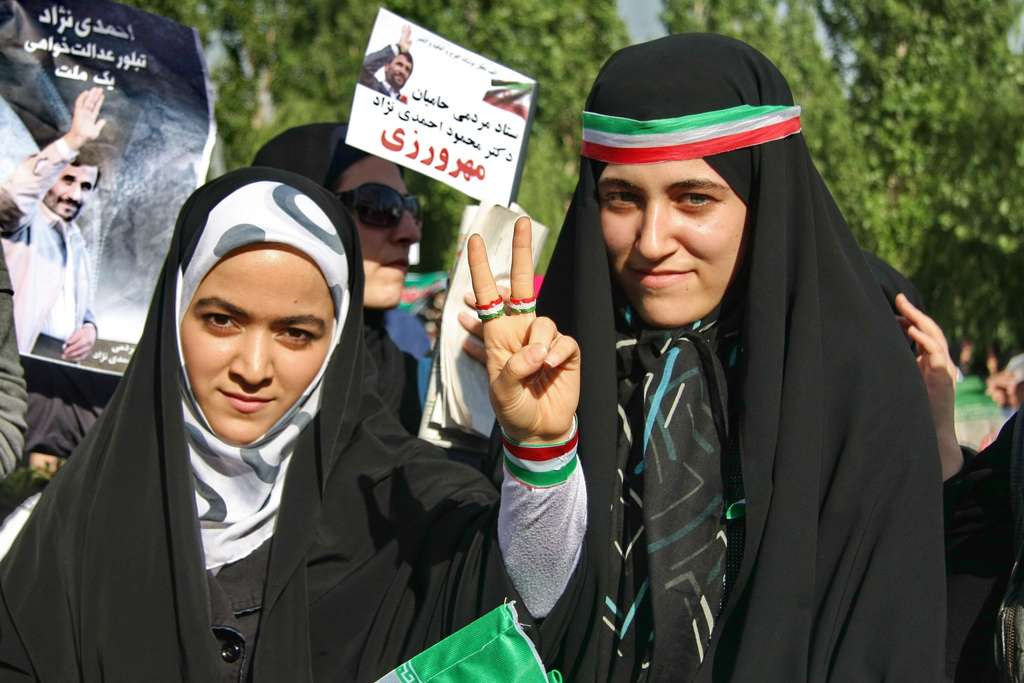Why Won't Iran Act Like Our Enemy?
What's a war party to do when the Official Enemy won't act like it?


What a bad week for the war party. Darn you, Iran! The country that the armchair warriors most love to hate refuses to play the villain's role assigned by the neoconservatives, "humanitarian" interventionists, Israel, Saudi Arabia, and the establishment media.
First Iran quickly released 10 U.S. sailors whose armed boats had violated Iran's territorial waters near the militarily sensitive Farsi Island in the Persian Gulf. (Never mind why the boats were there; the official explanation keeps changing, but don't dare suggest the reason was anything but innocent.) Next Iran was found in full compliance with the nuclear agreement, killing its nonexistent nuclear-weapons program. Then it released five Americans held in Iran in exchange for seven Iranians held in American prisons. (None of the 12 should have been jailed.)
What's a war party to do when the Official Enemy won't act like it? Where are militarists who seek the presidency to turn if they can't count on their tacit allies, Iran's hardliners, to sabotage the constructive actions of the reasonable Iranian president and foreign minister?
The U.S. government and its closest ally, Israel, have threatened to attack Iran for decades. Meanwhile they have conducted covert, proxy, and cyber war against the Islamic Republic. But Iran wouldn't take the bait. George W. Bush hoped to bomb Iran into regime-change before he left office, but the U.S. intelligence apparatus documented that Iran was not building a nuclear weapon, leaving Bush's plans in tatters.
The warmongers just can't catch a break, but Iran's un-enemy-like conduct doesn't deter them. As true-believers, they are unfazed by facts.
Hillary Clinton is to be included in this group. In one of her presidential debates she listed Iran among the enemies she's most proud to have made—odd coming from a former secretary of state who says she helped prepare for the nuclear talks. In the midst of the good news last weekend, she called for new sanctions because Iran had tested a long-range allegedly nuclear-capable missile in supposed violation of a UN resolution. (The Obama administration obliged, although Iran protests that the missile is not nuclear-capable.)
It unclear why the arms-merchant United States and its Mideast allies are allowed to have long-range missiles, but Iran is not. It's also unclear why that UN resolution is so special when the U.S. government has no problem with Israel's 50-year-old defiance of UN resolutions regarding the oppressed Palestinians. Israel, of course, is the Middle East's nuclear monopolist, refuses (unlike Iran) to sign the Non-Proliferation Treaty, and thus is not subject to inspections, as Iran long has been. One also wonders what Iran could do with a long-range missile armed with a conventional warhead except to perhaps deter the long-threatened U.S. attack. Iran has a small military budget and no offensive capability.
The Republican presidential contenders saw aggression in everything the Iranians did last week and appeasement in everything President Obama did. We should be accustomed to such nonsense by now. You'd have thought Iran crossed into American waters or repeatedly threatened the United States. If under similar circumstances an American president did what the Republicans apparently think Iran should have done—presumably, ignore the intruding boats—they'd be screaming for impeachment. If, as they say, Turkey was justified in shooting down Russian military jets that briefly violated its airspace (it wasn't), why are they upset when Iran peacefully apprehends armed U.S. naval craft in their waters?
Donald Trump, Ted Cruz, Jeb Bush, and Marco Rubio all struck tough-guy poses, demonstrating once more why they and Clinton must be kept far from U.S. military power. Against Iran, the Republicans expressed their support for the barbaric theocratic Saudi Arabia, although it subsidizes bin Ladenites and commits genocide with U.S. support in Yemen.
Contrary to the hawks, Iran is the aggrieved party in the relationship with the United States. It tried to cooperate with America many times, including after 9/11, but was rebuffed consistently.
To be sure, Iran's regime is an authoritarian theocracy, but Saudi Arabia is worse. Tehran, not Riyadh, has churches and synagogues, and Iranian women have far more freedom than Saudi women. Iran's regime, an unfortunate reaction to CIA subversion of Iranian secular democracy in 1953, is no threat to Americans.
It's past time for detente. If Israeli and Saudi Arabia don't like it, too bad.
This piece originally appeared at Richman's "Free Association" blog.


Show Comments (40)